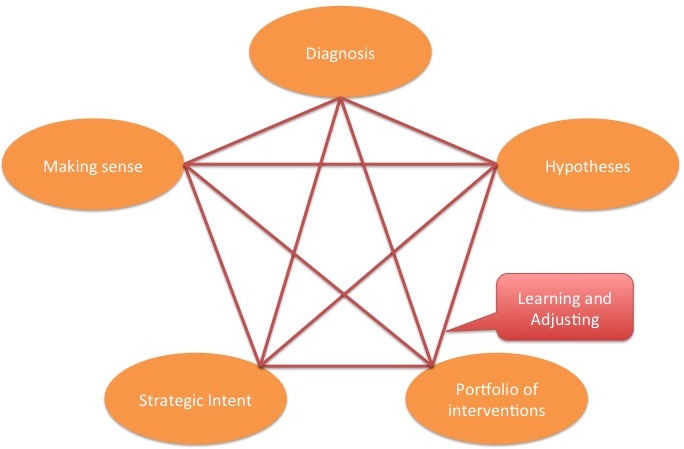I have been blogging quite extensively about the Theory of Change (ToC) approach in recent months. My blog posts reflect a process that I have been going through as part of my different work engagements: adapt ToC approaches to be more sensitive to the complexities development programmes face in their day-to-day work.

Different phases of Systemic Insight
In parallel, with my colleagues at Mesopartner we keep doing research on understanding complex realities and our human reaction to them based on cognitive science, understanding the process of economic change, making decisions under conditions of uncertainty, and managing highly resilient organisations. In these contexts, ToC has limited applicability and a number of drawbacks. Therefore, we have been working on an alternative approach to the ToC approach which we built from the ground up based on our growing understanding of how complex systems work and how involved actors can lead a process of exploration and change. The approach is called Systemic Insight. Continue reading


 We know that current development challenges are complex. But not all elements of a development programme are necessarily
We know that current development challenges are complex. But not all elements of a development programme are necessarily